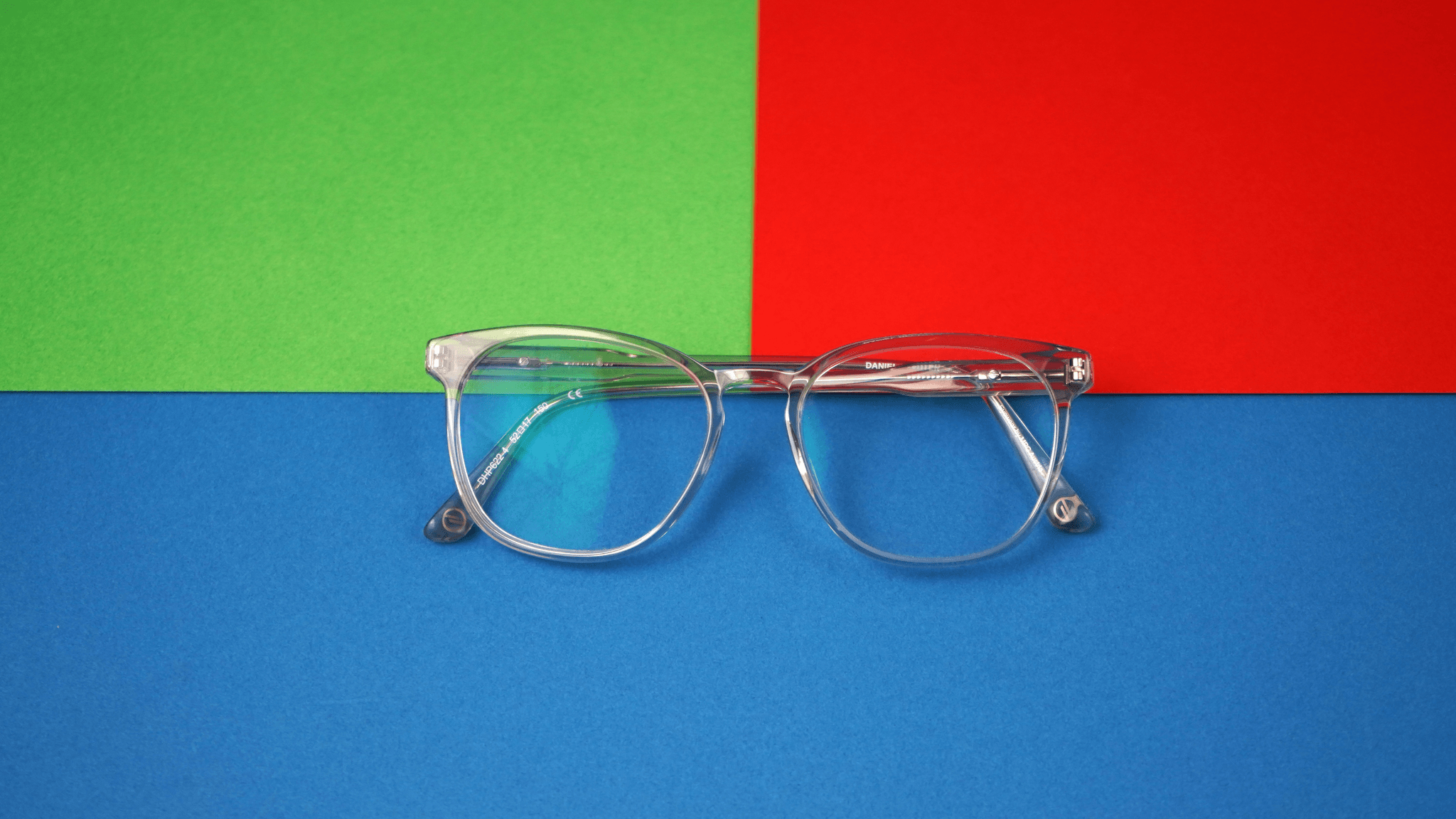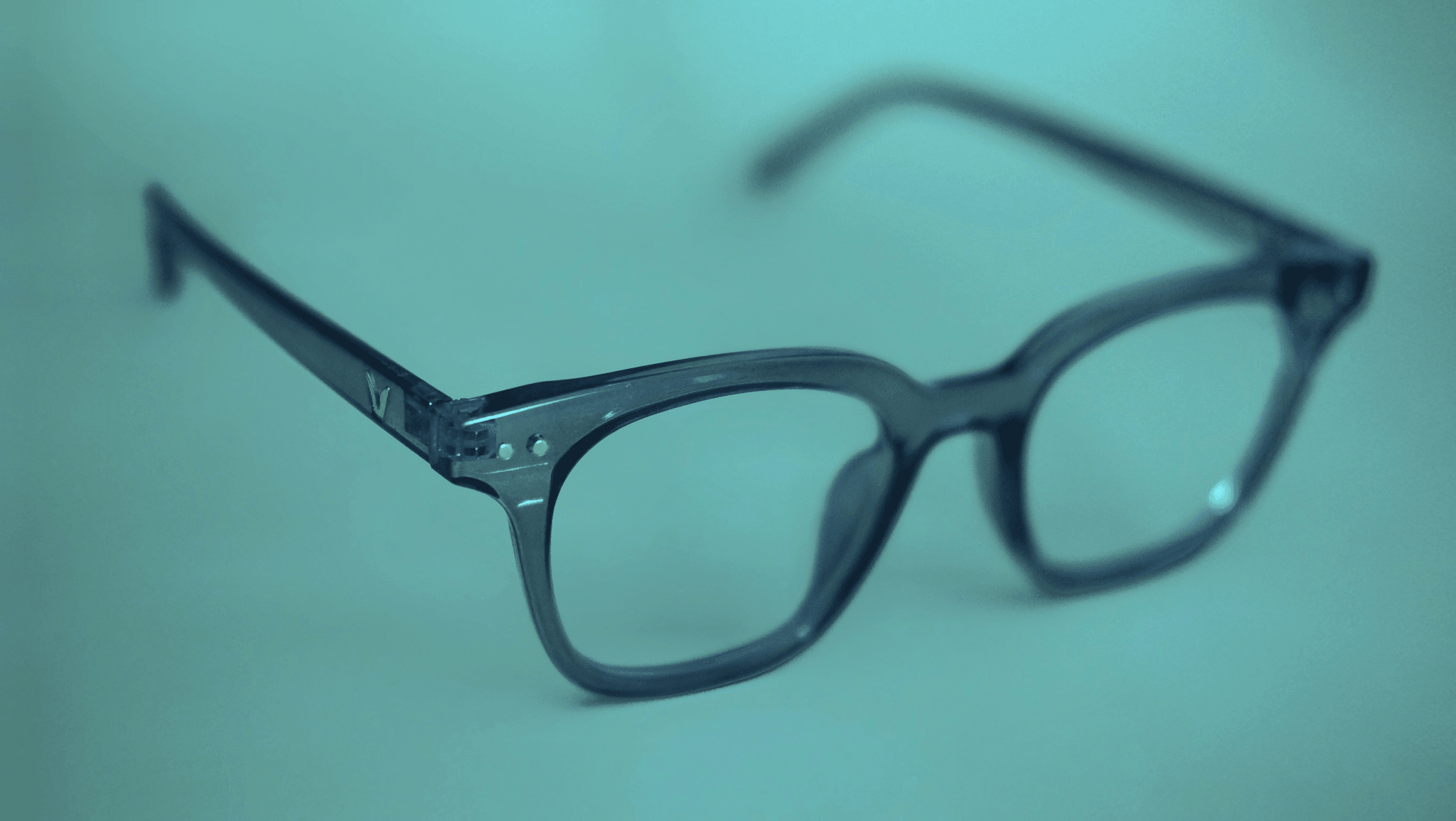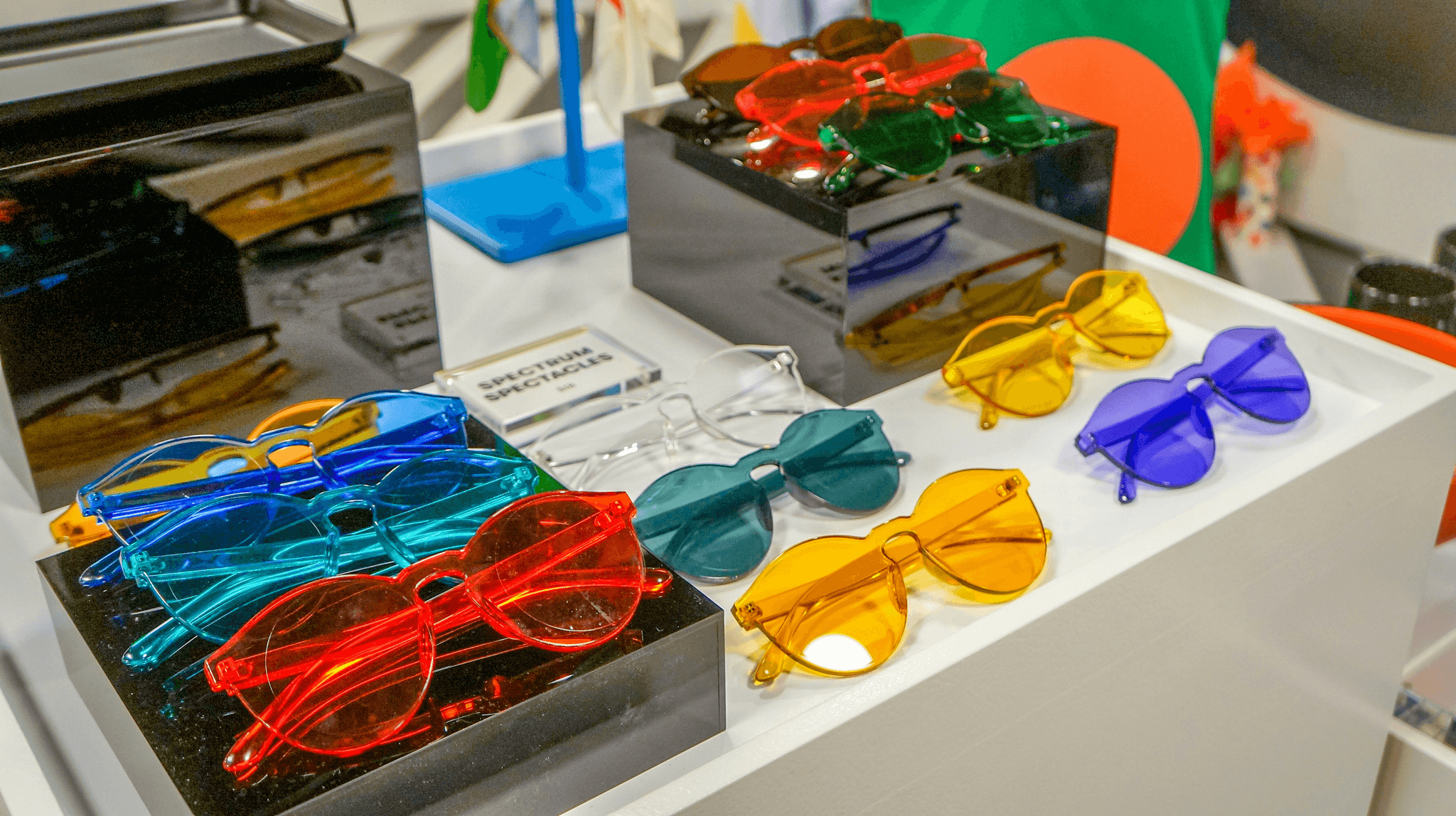Introduction

The world of eyewear is a fascinating blend of function and fashion, and acetate has emerged as a material that captures the attention of both designers and consumers alike. But is acetate a good material for glasses? With its unique properties and aesthetic appeal, acetate frames have become increasingly popular, prompting a closer look at their benefits and drawbacks.
The Allure of Acetate in Eyewear
Acetate offers an irresistible charm with its vibrant colors and patterns that can transform any pair of glasses into a statement accessory. Unlike traditional plastic or metal frames, acetate provides an opportunity for customization that appeals to individual styles and preferences. This allure raises questions: What are the disadvantages of acetate frames? Are glasses better with plastic or acetate? Understanding these nuances can help you make informed choices about your eyewear.
Is Acetate a Good Material for Glasses?
When considering whether acetate is a good material for glasses, it’s essential to weigh its strengths against potential weaknesses. Acetate glasses vs plastic often leads to debates about durability, comfort, and style; while both materials have their merits, many find the lightweight nature and flexibility of acetate frames particularly appealing. However, do acetate glasses last? Addressing these concerns will shed light on why so many opt for this versatile material over others.
A Deep Dive into Acetate Benefits
Acetate frames come with numerous advantages that make them stand out in the crowded eyewear market. From their striking visual aesthetics to their eco-friendly attributes, there's much more than meets the eye when it comes to understanding what makes them special. Additionally, exploring the differences between acetate glasses vs metal can reveal even more about why this material continues to gain traction among fashion-forward individuals looking for both style and substance.
What is Acetate?

Acetate is a versatile material that has gained popularity in the eyewear industry due to its unique properties and aesthetic appeal. This semi-synthetic plastic, derived from natural sources, primarily cellulose, is celebrated for its balance of durability and flexibility. As we explore the intricacies of acetate, you'll discover why it stands out as a prime candidate for stylish eyewear.
Origins and Composition
The origins of acetate can be traced back to the early 20th century when chemists sought sustainable alternatives to traditional plastics. Made primarily from wood pulp or cotton fibers, acetate undergoes a series of chemical processes that transform it into a lightweight yet durable material perfect for eyeglass frames. This natural basis raises the question: is acetate a good material for glasses? The answer lies in its combination of comfort and resilience.
How Acetate Differs from Other Materials
When comparing acetate glasses vs plastic or even metal frames, several distinctions emerge that highlight acetate's unique advantages. Unlike standard plastic frames, which can feel cheap and flimsy, acetate offers a richer texture and more substantial feel while still being lightweight. Additionally, while metal frames may provide sturdiness, they often lack the vibrant color options available with acetate—making it an appealing choice for fashion-forward individuals seeking both style and functionality.
Common Uses Beyond Eyewear
Acetate's applications extend far beyond just eyewear; it's found in various industries due to its versatility and aesthetic qualities. From high-end fashion accessories to musical instrument components like guitar picks, this material showcases its adaptability in different contexts. Furthermore, understanding what are the disadvantages of acetate frames can help consumers make informed decisions about their purchases—while they’re generally durable and stylish, they may not be as impact-resistant as some metal alternatives.
Durability and Flexibility

When considering whether acetate is a good material for glasses, durability and flexibility are key attributes that come into play. Acetate frames possess a unique balance of strength and lightweight properties, making them ideal for everyday wear. This combination not only enhances comfort but also ensures that your eyewear can withstand the rigors of daily life.
Strong Yet Lightweight Properties
One of the standout features of acetate frames is their strong yet lightweight nature. Unlike some materials that can feel heavy on the face, acetate offers a comfortable fit without sacrificing sturdiness. This makes acetate glasses an excellent choice for those who prioritize both style and comfort in their eyewear.
Impact Resistance for Daily Use
When you ask, Do acetate glasses last? the answer leans heavily towards yes, thanks to their impressive impact resistance. Acetate frames are designed to absorb shocks better than many plastic alternatives, which means they can handle accidental drops or bumps with ease. This resilience makes them suitable for active lifestyles where durability is a must.
Flexibility That Fits Every Face
Flexibility is another area where acetate shines brightly compared to other materials like metal or standard plastic options. The natural give in acetate allows these frames to conform comfortably to various face shapes without pinching or causing discomfort. This adaptability not only enhances wearability but also ensures that your eyewear looks great regardless of your unique facial structure.
In summary, when weighing the pros and cons of different frame materials—like acetate glasses vs plastic or metal—it's clear that acetate offers remarkable durability alongside flexibility tailored to individual needs. If you're looking for stylish yet resilient eyewear, Daposi's innovative designs might just be what you need! Bringing Your Vision to Life: Beyond Eyewear, Beyond Expectations! 🌟 At Daposi, we are deeply committed to assisting our customers in developing new styles that truly stand out.
Style and Aesthetics

Vibrant Color Options and Patterns
One of the standout features of acetate frames is their stunning array of colors and patterns. From bold hues to intricate designs, acetate allows eyewear brands to unleash their creativity like never before. This versatility means that whether you're looking for something classic or trendy, there’s an acetate frame that can perfectly complement your style. Plus, with such variety, you can easily switch up your look without breaking the bank—making acetate glasses a fashionable choice!
Smooth Finish and Comfort
Comfort is paramount when selecting eyewear, and acetate delivers on this front as well. The smooth finish of acetate frames not only feels good against the skin but also helps reduce irritation during prolonged wear—an important consideration when thinking about whether glasses are better with plastic or acetate. Additionally, the lightweight nature of acetate ensures that you won't feel weighed down throughout your day; instead, you'll enjoy comfort without compromising on style.
Contemporary Frame Designs
The contemporary designs made possible by acetate are truly impressive; they reflect current trends while maintaining timeless appeal. Acetate frames can effortlessly blend classic shapes with modern flair—think oversized cat-eyes or sleek rectangles that make a statement without being overly flashy. When pondering over What are the disadvantages of acetate frames? it’s worth noting that any potential downsides are easily overshadowed by their stylish appeal and adaptability in various settings.
In conclusion, while exploring the world of eyewear materials like acetates versus plastics or metals (such as in Acetate glasses vs plastic and Acetate glasses vs metal), it's clear that acetates offer unique advantages in terms of aesthetics without sacrificing comfort or durability.
Sustainable Choice

In an age where eco-consciousness is on the rise, acetate stands out as a sustainable option for eyewear. The allure of acetate lies not just in its aesthetic appeal but also in its environmental benefits, making it a compelling choice for those asking, Is acetate a good material for glasses? This section delves into the eco-friendly aspects of acetate, its biodegradability compared to plastic, and brands leading the charge in sustainability.
Eco-friendly Aspects of Acetate
Acetate is derived from natural sources like cotton and wood pulp, which makes it a more environmentally friendly alternative to traditional plastics. Unlike many synthetic materials that contribute to pollution and waste, acetate production utilizes renewable resources. When considering whether glasses are better with plastic or acetate, it's clear that choosing acetate supports a greener planet while still providing style and durability.
Biodegradability Compared to Plastic
One of the most significant advantages of acetate frames is their biodegradability. While conventional plastic can take hundreds of years to decompose, acetate breaks down much faster when exposed to natural elements. This raises an interesting question: Do acetate glasses last? Yes! They offer durability without sacrificing their eco-friendly nature—making them an excellent choice for environmentally conscious consumers.
Brands Leading the Way in Sustainability
Several eyewear brands are championing sustainable practices by utilizing acetate in their designs. These companies prioritize eco-friendly materials while maintaining stylish options that appeal to modern consumers. Daposi exemplifies this commitment with its slogan “Bring Your Vision to Life,” emphasizing both creativity and sustainability in eyewear innovation—proving that you can enjoy chic styles without compromising your values.
Cost-effective Quality

When it comes to eyewear, cost-effectiveness is a crucial factor for many consumers. Acetate emerges as a champion in this arena, offering stylish frames that don’t break the bank. Whether you’re looking for trendy designs or classic styles, acetate provides an affordable option without compromising on quality or aesthetics.
Affordability Without Compromising Style
Is acetate a good material for glasses? Absolutely! Not only do acetate frames boast vibrant colors and unique patterns, but they also come at a price point that won’t make you wince. With the versatility of acetate, you can easily find fashionable eyewear that fits your budget while ensuring you look great.
Long-term Value for Customers
One of the most pressing questions is whether acetate glasses last. The answer leans heavily towards yes! While there are some disadvantages of acetate frames—like potential brittleness under extreme conditions—the durability offered by high-quality acetate ensures that your investment pays off over time. Unlike cheaper plastic options, which may warp or break more easily, acetate frames are designed to withstand daily wear and tear without sacrificing style.
Popular Brands Using Acetate
Many leading eyewear brands recognize the benefits of using acetate and incorporate it into their designs. From renowned names to boutique labels, these brands understand that customers want both style and substance in their eyewear choices. When comparing acetate glasses vs plastic or even metal options, it’s clear that the former often strikes the perfect balance between aesthetics and practicality.
Conclusion

As we wrap up our exploration of acetate in eyewear, it's clear that this material offers a unique blend of style, durability, and sustainability. When considering whether is acetate a good material for glasses, the answer leans heavily towards yes. Acetate frames not only provide an appealing aesthetic but also stand the test of time when properly cared for, making them a worthy investment.
Unpacking the Versatility of Acetate
Acetate's versatility shines through its ability to cater to various styles and preferences while maintaining comfort and durability. While some may wonder about what are the disadvantages of acetate frames? it's important to note that any potential drawbacks are often outweighed by its benefits. From vibrant colors to intricate patterns, acetate glasses can be tailored to suit anyone's taste, proving that they can indeed compete with plastic and metal alternatives.
Embracing Style with Acetate Frames
The stylish appeal of acetate frames cannot be overstated; they offer an array of design possibilities that make them stand out in any eyewear collection. Many people ask, are glasses better with plastic or acetate? The answer often depends on personal preference; however, acetate frames provide a more sophisticated look without sacrificing comfort or functionality. Whether you're drawn to bold statements or subtle elegance, there's an acetate option that fits your vision perfectly.
Daposi: Your Partner in Eyewear Innovation
At Daposi, we believe in bringing your vision to life—beyond eyewear and beyond expectations! 🌟 Our commitment extends beyond just creating stylish frames; we aim to support innovative designs that incorporate sustainability and uniqueness into every piece. With our expertise in transforming ideas into stunning physical objects, you can trust us as your partner in crafting exceptional acetate eyewear that stands out while addressing questions like do acetate glasses last? Let us help you create something remarkable together!
